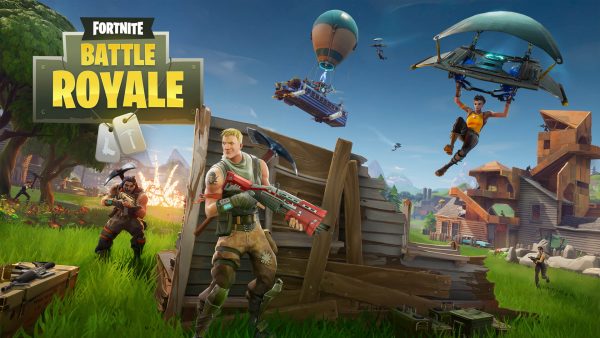“Fortnite” is Here to Stay
“Fortnite” borrowed much from “PlayerUnknown’s Battlegrounds,” but it’s a knockoff we need. (BagoGames VIA FLICKR)
May 12, 2018
In 1993, video game developer id Software released “Doom” and revolutionized the gaming industry by introducing one of its most enduring and popular genres: the first-person shooter. In the wake of its release, imitators began cropping up, many of them using very similar gameplay structures as “Doom.” Among these came “Marathon,” “Star Wars: Dark Forces” and “Duke Nukem 3D.” It is not an exaggeration to claim that the release of “Doom” and the rise of its copiers, known by their nickname of “Doom clones,” opened the floodgates not only to an entirely new genre but also to a gaming craze that would eventually give us works like “Half-Life,” “Halo” and “Call of Duty.” Without the revolution of “Doom,” the gaming industry would likely look very different.
Presciently, id Software was keen to support early adopters of their formula, even licensing their original engine to other studios, which allowed games like “Heretic,” “Hexen” and “Strife” a chance at the same success that enabled their development in the first place. id Software recognized that being the progenitor of a genre would ultimately foster more interest in their own products, a wager that worked out splendidly when they released the megahit, “Quake,” in the late ’90s.
Presently, something very similar is happening, but with a markedly different effect on the industry. In March of 2017, designer Brendan Greene — better known by his pen name “PlayerUnknown” — recruited members of developer Bluehole, Inc. to create and release “PlayerUnknown’s Battlegrounds” (PUBG). Inspired by the 2000 film “Battle Royale,” it features slow-paced, tense gameplay as 100 players are dropped into a vast arena with only one goal: be the last one standing. It was a smash hit, and it easily climbed up to the most-played charts in a way that the industry had not seen with an independent multiplayer title since the release of “Counter-Strike” in 1999.
Meanwhile, the success of “PUBG” — not unlike “Doom” — began to create imitators, so-called “Battle Royale” games. Most were largely benign and unsuccessful in the wake of “PUBG’s” absolutely monstrous domination of its newly-created market. This continued until September of 2017 when Epic Games released “Fortnite: Battle Royale,” unexpectedly creating a global phenomenon that has enraptured millions worldwide. It took until February 2018, but “Fortnite” eventually overtook “PUBG” in popularity, with $126 million in revenue generated monthly.
Needless to say, Bluehole was not pleased with “Fortnite’s” tremendous success. It didn’t take long before Greene and his company began actively working against Epic Games. Bluehole threatened legal action against the “Fortnite” developer, especially when it turned out that Epic Games referenced “PUBG” and other Battle Royale-style games in their marketing.
“After listening to the growing feedback from our community and reviewing the gameplay for ourselves, we are concerned that Fortnite may be replicating the experience for which PUBG is known,” a Bluehole press release noted in September. Greene, in a Reddit AMA (Ask Me Anything), added with anger, “Other companies will, of course, enter the marketplace, but I would just hope they put their own spin on the game mode and not just make a carbon copy!”
While “Fortnite’s” popularity gives it enough of a shield against legal action, this has not stopped Bluehole from filing lawsuits against companies like NetEase to stop their less-popular Battle Royale-style titles.
So, this begs the question: How much ownership does a developer have over the mechanics that they created? This is not an easy thing to answer, but there is a larger precedent to note here that goes beyond the gaming industry. When “Doom” came out in 1993, there was always an undercurrent of creative independence in early developers like id Software, not unlike those present in revolutionary filmmakers. Imagine if Orson Welles sued every film that copied the new techniques he pioneered in “Citizen Kane.” What if George Lucas decided that he was the only person who could make epic space operas? And what would have happened if Steven Spielberg kept the game-changing tech behind “Jurassic Park” for himself?
It’s the same in gaming. Very rarely do new genres take shape in the game industry — but when they do, they tend to spark eras of immense creativity. “Doom” is the perfect example and, in many ways, “PUBG” is to Battle Royale games as “Doom” was to first-person shooters. What Bluehole is doing is stifling the gaming industry and reducing its capacity for creativity, when it should be welcoming new entries in the genre as id Software did in the ’90s. People evidently love these games, if the success of Epic Games is any indication. And, really, does anyone — other than Brendan Greene — want “Fortnite” to go away?














